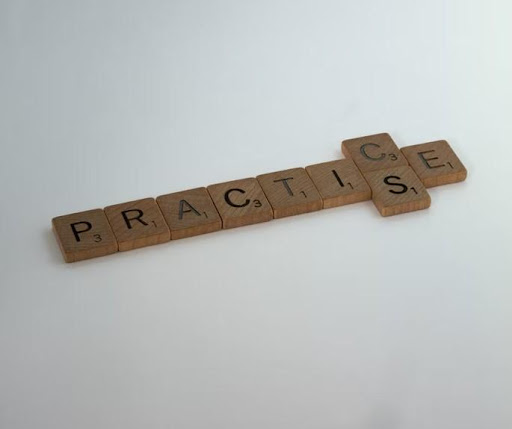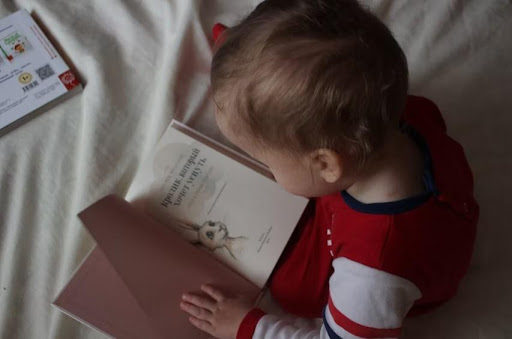A reading disability or problem in reading is when a child experiences significant challenges with reading. Children with reading problems have average intellectual abilities but they experience serious problem with the reading part.
The struggles with reading affect how children perform in academic sessions, and their achievements fall below what is expected for children of their age, grade, and intellectual ability.
Reading disabilities may include:
- Difficulty in breaking words or sentences
- Problem in reading fluency or slow speed
- Difficulty in reading paragraphs
Many children experience difficulty in reading and writing at some point during their learning years. But this does not mean they have learning disabilities or struggling with reading part. A child having problem in reading has particular signs, and they don’t improve quickly. The signs of learning disability vary from person to person.
A child having reading disability experiences problem with reading words properly or with understanding what they are exactly reading. Once your child begins schooling, signs that indicate your child might have a reading disability include:
- Difficulty in recognizing alphabets
- Difficulty in learning name of the colours
- Unable to combine sounds
- Trouble rhyming
- Trouble in recognizing a word after seen it many times in different contexts
- Slow reading
- Frequent letter or number reversals by the end of Grade Second
- Consistent omission of letters
- Reversal of letters
One of the most common reading disabilities is dyslexia. Around 20% of people including children experience some level of dyslexia. The condition affects reading, pronounce, write, spell, and process information at the expected level.
Early diagnosis of learning disability can provide children with dyslexia important tools and right guidance before high level of frustration and low self-esteem turn them off to reading.
Helping Your Child with a Reading Disability
If your child’s reading skills are below the expected level for their age, education and intellectual abilities, they may experience a reading disability.
If you find your child might have a reading problem, it is very important to share your concerns with your child’s teachers. School teachers will be able to check your child’s learning ability, and use different resources and effective strategies to help enhance your child’s reading skills. If the techniques used in the school do not work or improve your child’s reading ability, your child might benefit from a professional reading tutor.
Reading tutoring isn’t only for those who need help improving reading skills. A good reading tutor will help your child to learn new words, translate vocabulary using context, and create effective strategies to enhance reading comprehension and analysis. Teaching reading to a dyslexic child takes time, patience, dedication and hard work.

By second grade, it is usually clear when children need additional help and support in reading. Reading disability may lag behind other learning areas. Don’t wait to see if your child shows improvement. You can make a real difference for your child with reading disability by acting early on.
There are countless benefits of hiring reading tutors for your child with dyslexia. Professional dyslexia tutor can help a child with reading disability in different ways that will help them academically as well as emotionally.
A reading tutor provides dyslexic children effective tools they need to begin making progress in reading, fluency and comprehension. When using the right teaching method, an experienced dyslexia tutor can help a child build the foundation that they need to make progress and succeed.
In addition to the academic benefits, dyslexia tutor can also provide many emotional benefits. When children with dyslexia begins to see their own progress, they start to realize what they are capable of, and this can bring about a positive change in attitude; the frustration that has built up begins to lessen, and they feel optimistic about their abilities and their future. Rather than being a constant reading struggle, reading and learning can begin to appeal to their natural interests and curiosity. Mostly, after taking effective dyslexia tutoring sessions, children will begin to pick up their books and read for fun for the first time in their lives.

Your child’s tutor must be qualified to teach with the right instructions and also have the ability to make strong connection with your child and make reading fun. Some reading tutors may come highly recommended, but if they fail to make connection with your child with reading disabilities the experience may end up being a waste of time and money. Working with an experienced reading tutor for one on one instruction can be highly effective.
If your child is hesitant to attend a reading tutoring program, schedule it early and let him get it over with, thus avoiding a sense of dread about the upcoming learning session. When it’s over, their whole day is open to them and they still have time to join their friends for fun!
Final Thoughts
Kids with dyslexia often get specialized reading instructions. That’s essential in helping them learn to read properly. But it may not be enough to get every child reading properly at grade level. Having an experienced tutor can help. Professional reading tutors turn struggling readers into bookworms by tailoring their approach to each individual student. Reading tutors work with students to establish effective reading habits, build reading strategies,improve their vocabularies, and creating the strong reading foundation essential for a lifetime of success.

